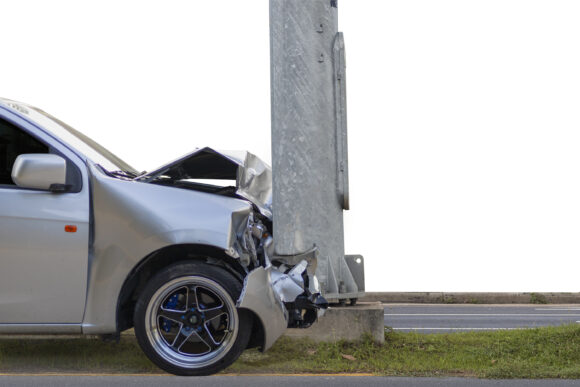Acuity and Progressive Specialty Insurance Co. disputed who should pay after a 16-year-old boy borrowed a friend’s car and crashed it into a utility pole in Streetsboro, Ohio.
The driver was insured by Acuity through a policy issued to his father. The car’s owner was insured by Progressive. The Progressive policy provided liability coverage to drivers not listed on the policy who had permission to use the vehicle, but only if the driver did not have liability coverage through another insurance policy.
The Portage County Common Pleas Court and the the 11th District Court of Appeals issued conflicting opinions about which insurer should pay. A divided Ohio Supreme Court settled the question Thursday by ruling that the plain language of the two policies required Acuity to pay.
“Where two insurance policies exist, and where under the plain and natural reading of both policies, one policy provides coverage and the other does not, we must honor the parties’ agreement,” the 5-2 opinion says.
The insurer’s court battle stems from Ashton Smith’s collision with the utility pole on June 4, 2020. Three passengers in the car said they were injured and the city made a claim for damage to its utility pole.
Acuity filed a lawsuit against Progressive in Portage County, arguing that Progressive should pay for any claims stemming from the crash because it insured the car that Smith was driving. Both insurers filed motions for summary judgment.
The Portage County court ruled in favor of Progressive. But after Acuity appealed, the 11th District Court of Appeals overturned the decision, holding that Progressive’s “escape clause” was not enforceable.
The court cited a 1970 decision by the Ohio Supreme Court in a lawsuit filed by State Farm Mutual Insurance Co. and Home Indemnity Insurance Co. The policy issued to the vehicle’s owner had an escape clause that barred coverage if a driver who borrowed its insured’s car was covered by another policy. The driver’s policy contained a clause that stated it covered only losses in excess ofthe coverage provided by the vehicle owner’s insurance policy.
The appeals court determined that the excess clause trumps any escape clause is such situations.
The Supreme Court majority took a different view. In an opinion written by Justice R. Patrick DeWine, the majority said the State Farm case was different than the dispute between Acuity and Progressive. In State Farm, the plain language of both policies provided that no coverage was available under either policy. Smith, on the other hand. was clearly insured by the Acuity policy because he was a listed member of the vehicle owner’s household, the majority said. Smith was clearly not covered by the Progressive policy because no coverage is available to a driver not listed on the policy who is covered by another insurance policy.
“Thus, under the plain language of the contracts at issue, Acuity is responsible for providing liability coverage to Smith for the accident,” the majority opinion says.
Justices Jennifer Brunner and Michael P. Donnelly dissented. Brunner wrote a separate opinion saying the the Supreme Court should never have accepted review of the Court of Appeals decision. She said the Acuity policy provided excess coverage that kicks in only after another insurer pays its policy limits.
“The 11th District applied our precedent and made the required, careful analysis of the contract language at issue,” Brunner wrote. “Our review is unwarranted and unnecessary.”
Top photo is for illustrative purposes only.
Was this article valuable?
Here are more articles you may enjoy.


 Red Flags Adjusters Should Look for in Truck Accident Claims Investigations
Red Flags Adjusters Should Look for in Truck Accident Claims Investigations  Besieged Berkshire Utility Tries to Rewrite Who Pays for Wildfires
Besieged Berkshire Utility Tries to Rewrite Who Pays for Wildfires  AIG’s Zaffino: Outcomes From AI Use Went From ‘Aspirational’ to ‘Beyond Expectations’
AIG’s Zaffino: Outcomes From AI Use Went From ‘Aspirational’ to ‘Beyond Expectations’  Gas-Guzzler Revival Risks Dead-End Future for US Automakers
Gas-Guzzler Revival Risks Dead-End Future for US Automakers 